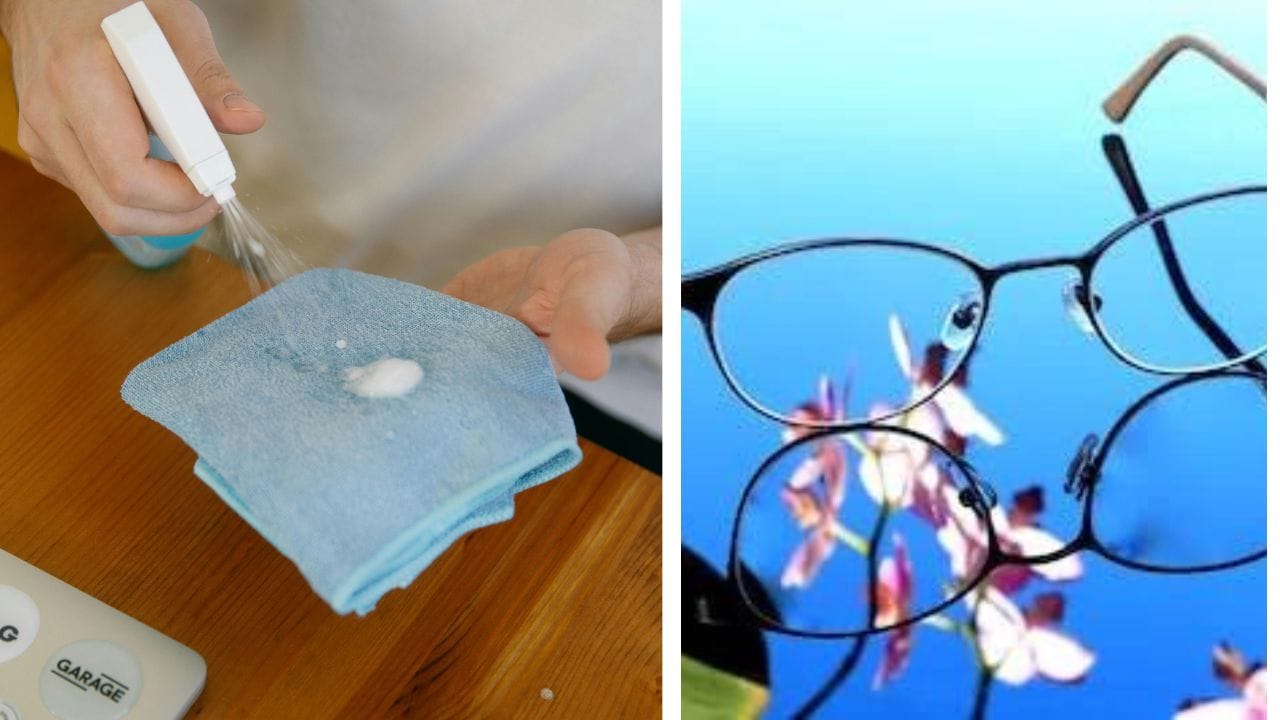Can You Use Regular Glass Cleaner on Blue Light Protection Glasses?
Regular glass cleaners often contain harsh chemicals that can damage the specialized coatings on Blue Light Protection lenses.

Key Takeaways:
- Understand the unique care requirements for Blue Light Protection glasses.
- Learn about the potential risks of using regular glass cleaner on specialized lenses.
- Discover alternative cleaning methods that are safe for Blue Light Protection glasses.
Caring for your Blue Light Protection glasses is crucial to ensure they continue to shield your eyes effectively from the potentially harmful effects of blue light emitted by digital screens. But when it comes to cleaning them, can you reach for the same glass cleaner you use on your windows and mirrors, or do these specialized lenses require a different approach? Let's dive into the details.
The Importance of Proper Cleaning
Blue Light Protection glasses are designed with a special coating that filters out blue light. This coating is what sets them apart from regular glasses and is essential for their functionality. However, this coating can also be delicate and susceptible to damage from harsh chemicals. Using the wrong cleaning solution can strip away the protective layer, diminishing the effectiveness of your glasses.
The Risks of Regular Glass Cleaners
Regular glass cleaners often contain ammonia or alcohol, which can be too abrasive for the sensitive coatings on Blue Light Protection glasses. These chemicals can cause streaks, smudges, or even permanent damage to the anti-reflective and blue light filtering layers. It's crucial to avoid these substances to maintain the integrity of your glasses.
Safe Alternatives for Cleaning
So, what should you use instead? Opt for a cleaner specifically designed for coated lenses or a mild, soapy water solution. These alternatives are gentle enough to clean your glasses without compromising the protective coatings. Always use a soft, lint-free cloth to wipe the lenses clean, and avoid using paper towels or other materials that could scratch the surface.
The Do's and Don'ts of Lens Care
When it comes to caring for your Blue Light Protection glasses, there are a few key do's and don'ts to keep in mind. Do rinse your glasses under lukewarm water before wiping them to remove any dust or debris. Don't use hot water, as it can damage the lens coatings. Do use a clean, dry cloth to gently pat the lenses dry. Don't rub the lenses too hard, as this can cause scratches.
The Role of Microfiber Cloths
Microfiber cloths are the gold standard for cleaning lenses. They are designed to trap dirt and oil without leaving behind lint or scratches. Always keep a microfiber cloth handy for quick touch-ups throughout the day. For a deeper clean, you can use the cloth in conjunction with a suitable lens cleaning solution.
DIY Cleaning Solutions
If you're in a pinch and don't have a lens cleaner available, you can make your own by mixing a drop of dish soap with water. Dip your microfiber cloth into the solution and gently clean the lenses. This homemade mixture is gentle enough for daily use and won't harm the special coatings on your Blue Light Protection glasses.
The Impact of Wearing Dirty Glasses
Wearing glasses that are smudged or dirty can lead to eye strain and discomfort. It's especially important for Blue Light Protection glasses to be clean, as any buildup can interfere with the blue light filtering process. Regular cleaning ensures that you get the full benefit of your glasses and maintain clear vision.
Storing Your Glasses Properly
Proper storage is just as important as cleaning when it comes to preserving your Blue Light Protection glasses. Always store them in a case when not in use to protect them from scratches and dust. Avoid leaving them in places where they can be easily knocked over or come into contact with harmful substances.
Regular Maintenance Checks
In addition to cleaning, it's a good idea to periodically check your glasses for any signs of wear and tear. Inspect the frames for any cracks or loose screws, and ensure the lenses are securely in place. Regular maintenance can extend the life of your glasses and prevent any unexpected issues.
Professional Cleaning Services
If you're unsure about cleaning your glasses yourself or if they require a more thorough cleaning, consider taking them to a professional. Many optical stores offer cleaning services that are safe for Blue Light Protection glasses. They have the tools and expertise to handle the job without risking damage to your lenses.
The Bottom Line on Glass Cleaners
In summary, it's best to steer clear of regular glass cleaners when it comes to your Blue Light Protection glasses. The chemicals they contain can be too harsh for the specialized coatings. Stick to cleaners that are specifically formulated for coated lenses, or use a gentle soap and water solution.
Summary
Blue Light Protection glasses require special care to maintain their protective qualities. Regular glass cleaners can be harmful to the coatings on these lenses, so it's important to use cleaning solutions that are safe and effective.
Adhering to the correct cleaning and storage practices will keep your glasses in prime condition, ensuring maximum blue light protection. If despite following these guidelines, you still opt for a new pair, click below to explore our selection.

